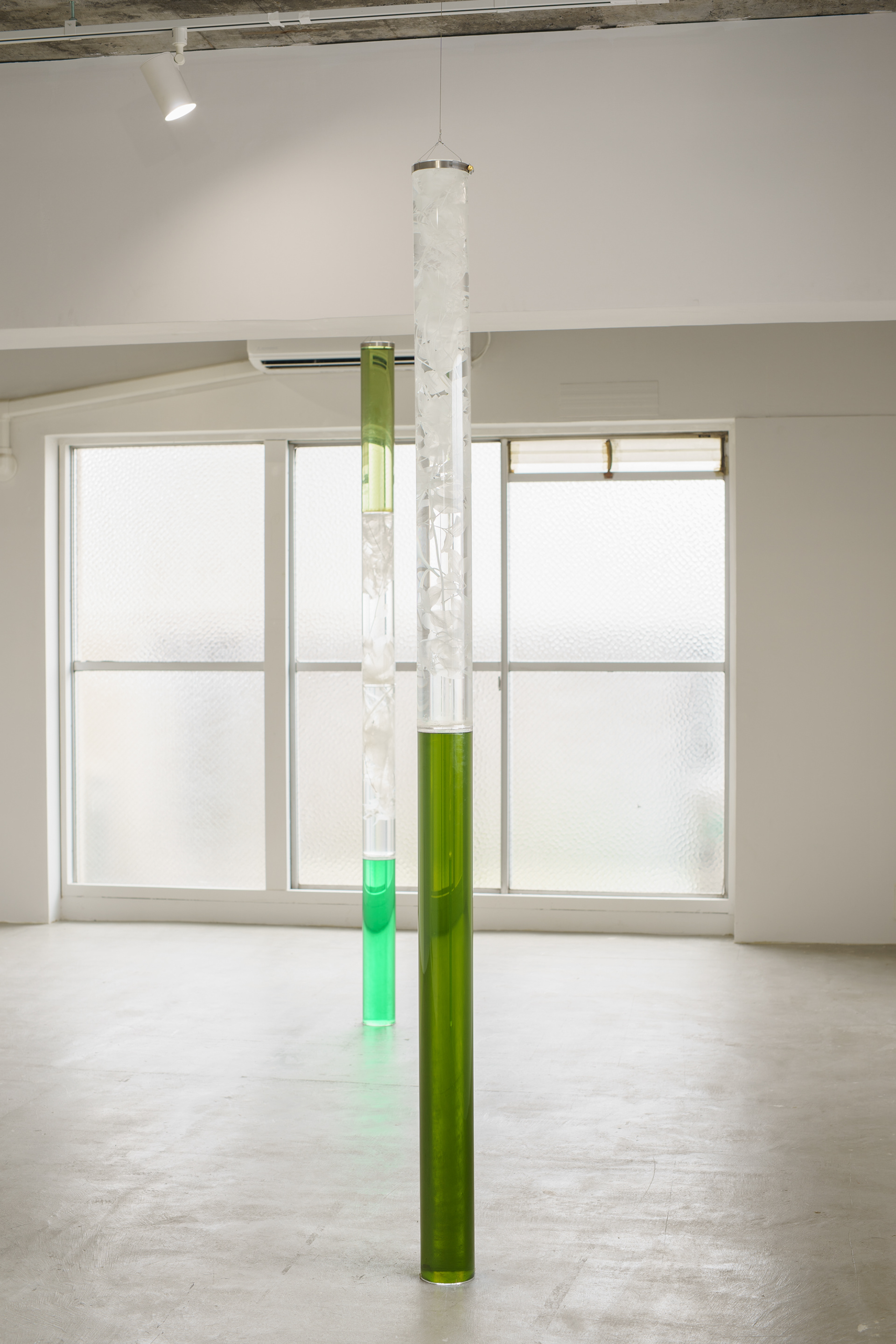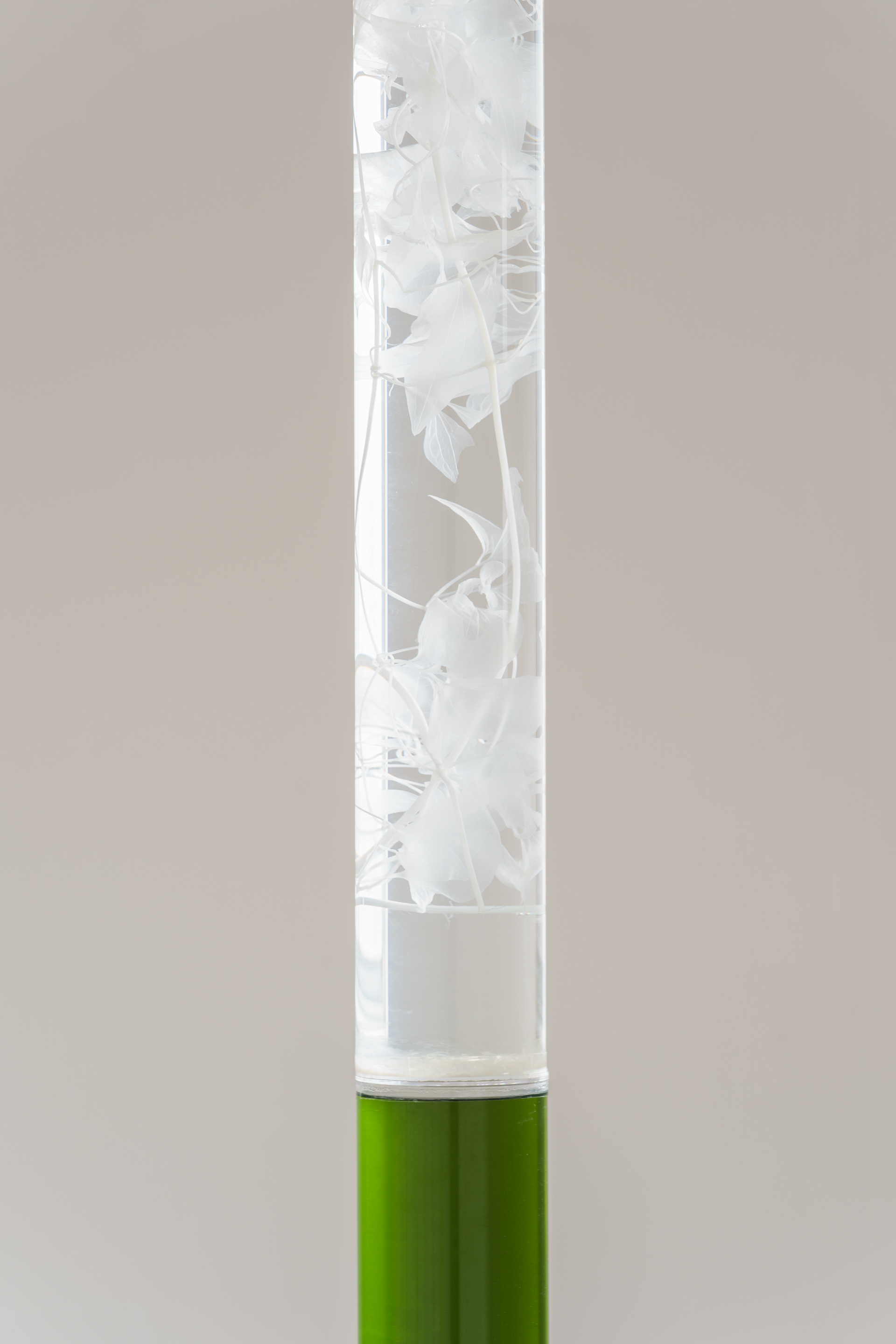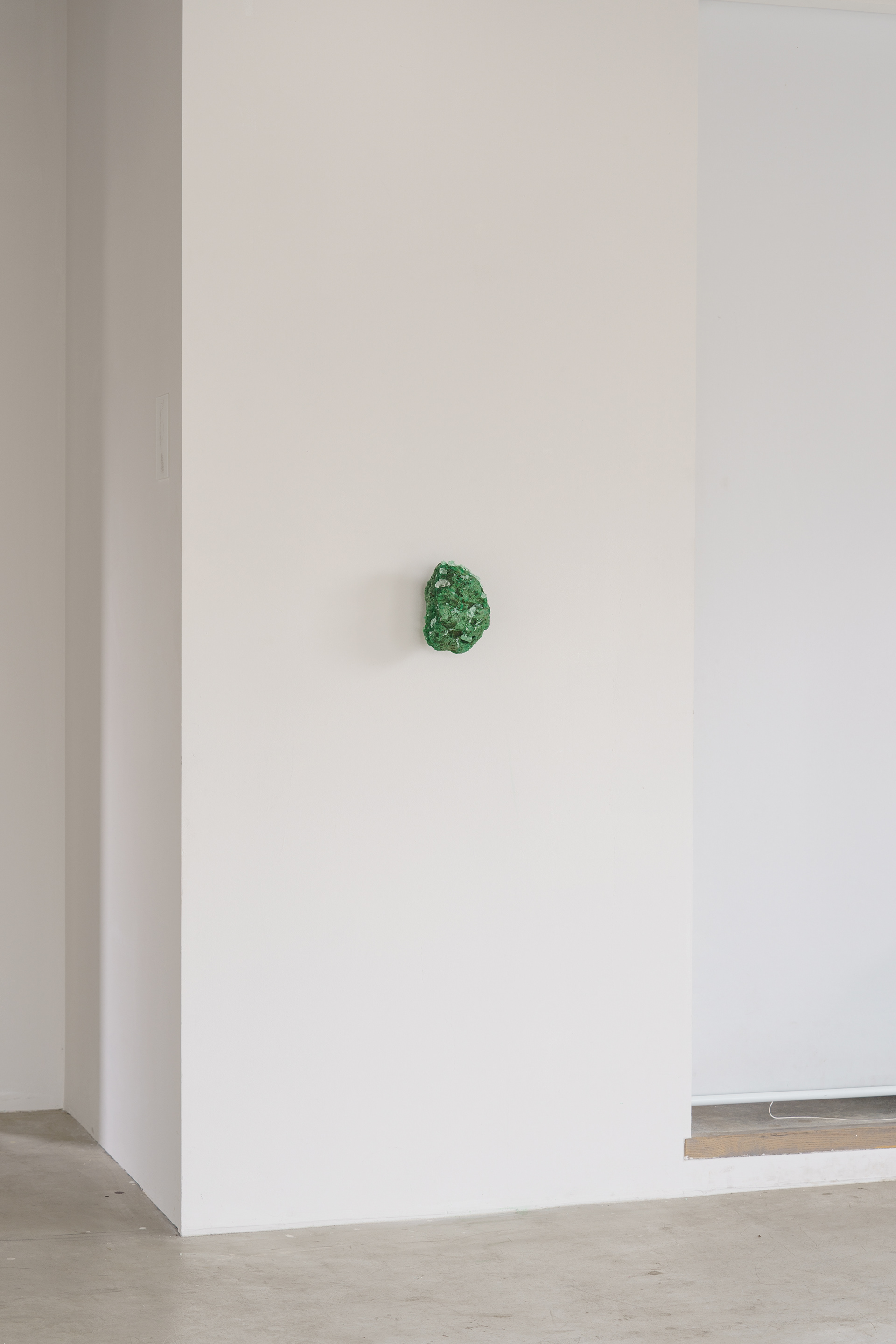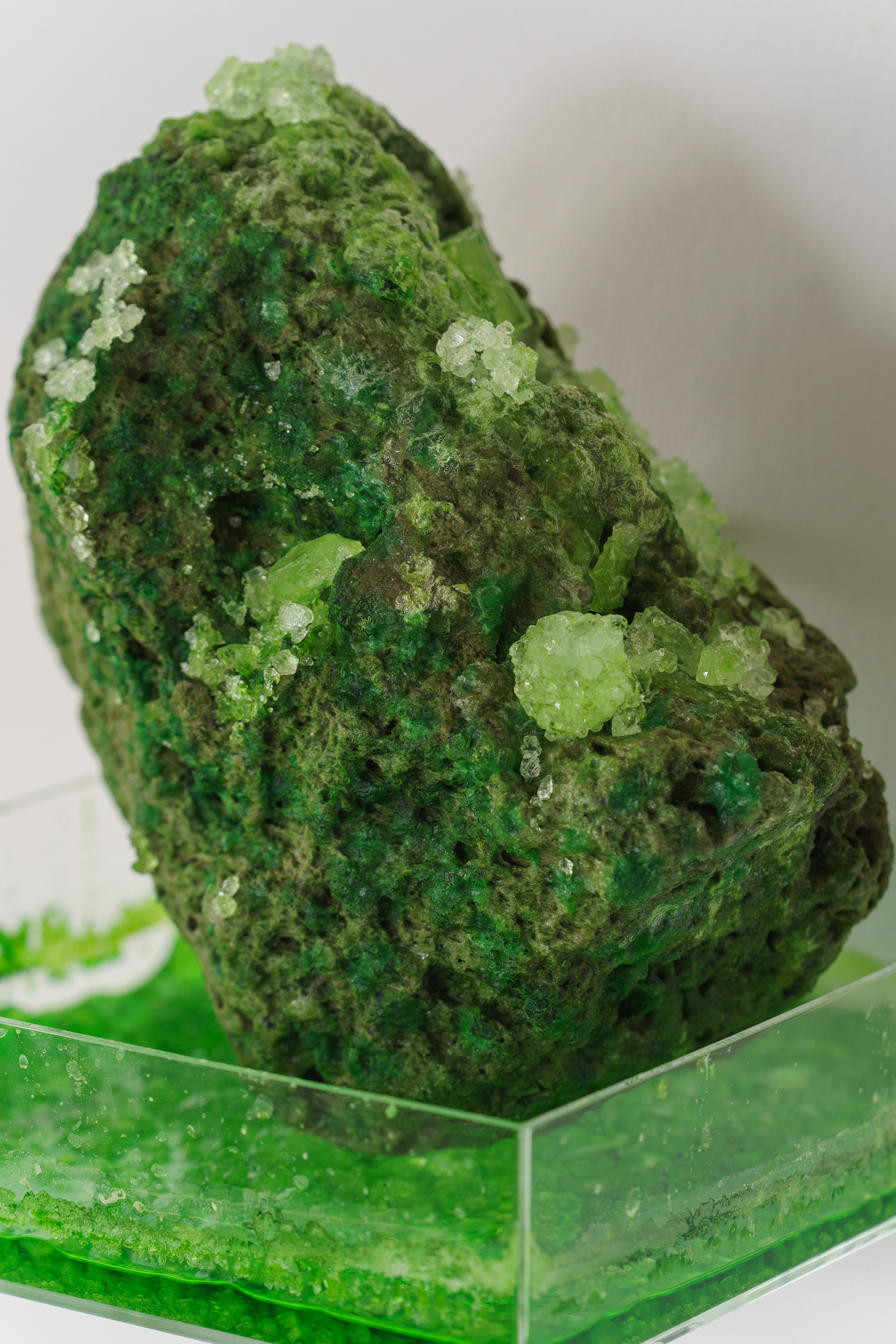How can we communicate with plants? This is the question that Anais-karenin has consistently pursued through her work and research. She has been practicing medicinal herbs with her own hands since her childhood, connecting with the traditional knowledge of her ancestors from northern Brazil.Her practice begins with leaning herself onto the biosystem of plants, having dialogues with the environments that surround her. It is also an attempt to unravel the perception of the world based on human logic in the modern way, and to open oneself to another perception and thought.
Anais' works, which are based both on her personal experiences as well as on research about philosophy and history around plants, visualize a part of the cosmological association of various phenomena by various agents surrounding plants. However, as you have a closer look into each of them, you will realize that a network which is impossible to grasp or to be described by the word “entire,” is unfolding behind them from a certain moment on. In doing so, she reveals that the term “logical” which we use without any doubts is already human-centric and exposes the fragility of the historical practice of thinking.
Furthermore, her gaze is poured on cultures and histories that plants create, going beyond her personal relationship with them. This exhibition in particular puts a focus on the dark history of manipulation in a colonial context over the original fauna and flora in Brazil. She offers one standpoint on postcolonial issues from an ecological perspective.
Philosopher Emanuele Coccia presents the idea of Metamorphosis that all the organs are in their state of transition, in order to avoid thinking of associations of non-humans within the logical frame of utility and order*. Anais transforms plants and their associations beyond the modern logic into artworks with mysteries. What questions does her practice raise for us at a time full of ecological discourses?
*Coccia, Emanuele; "Métamorphoses", Rivages, 2020.
- Curatorial text by Tomoya Iwata



